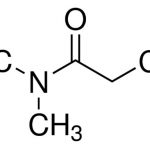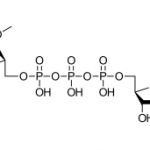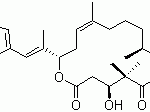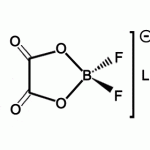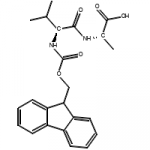
Identification
CAS Number
52315-92-1
Name
L-Lysine Acetate
Synonyms
2,6-diaminohexanoic acid acetate
2,6-Diaminohexansäureacetat
acide 2,6-diaminohexanoïque – acide acétique (1:1)
Acide acétique – lysine (1:1) [French] [ACD/IUPAC Name]
Lysinacetat (1:1) [German] [ACD/IUPAC Name]
Lysine Acetate [USP]
Lysine acetate (1:1) [ACD/IUPAC Name]
Lysine acetate (USP)
Lysine, acetate (1:1) [ACD/Index Name]
112523-77-0 [RN]
52315-76-1 [RN]
52315-92-1 [RN]
84222-88-8 [RN]
acetic acid and 2,6-diaminohexanoic acid
ACETIC ACID; LYSINE
L-Lysine acetate
L-Lysine acetate (JP17)
L-Lysine acetate salt
L-Lysine monoacetate
MFCD00039069 [MDL number]
SMILES
CC(=O)O.C(CCN)CC(C(=O)O)N
StdInChI
InChI=1S/C6H14N2O2.C2H4O2/c7-4-2-1-3-5(8)6(9)10;1-2(3)4/h5H,1-4,7-8H2,(H,9,10);1H3,(H,3,4)
StdInChIKey
RRNJROHIFSLGRA-UHFFFAOYSA-N
Molecular Formula
C8H18N2O4
Molecular Weight
206.240
MDL Number
MFCD00039069
Properties
Appearance
White crystals or White crystalline Powder
Safety Data
RIDADR
NONH for all modes of transport
WGK Germany
3
Specifications and Other Information of Our L-Lysine Acetate CAS 52315-92-1
Identification Methods
HNMR, HPLC
Assay
98.5%~101.5%
PH
6.5~7.5
Specific Optical Rotation
+8.4° ~+9.9°
State of Solution
≥95.0%
Chloride(Cl)
≤200ppm
Ammonium(NH4)
≤200ppm
Sulfate(SO4)
≤200ppm
Iron(Fe)
≤10ppm
Heavy Metals(Pb)
≤10ppm
Loss on Drying
≤0.2%
Residue on Ignition
≤0.1%
Other amino acids (TLC)
≤0.5%
Bacteria
<1000cfu/g
Yeasts and molds
<100cfu/g
Pseudomonas aeruginosa
Not detectable in lg
Staphylococus aureus
Not detectable in lg
Salmonella
Not detectable in lg
Escherichia coli
Not detectable in lg
Shelf Life
2 years
Storage
Under room temperature away from light
Known Application
Lysine acetic acid is one of the essential amino acids in the human body, with nutritional benefits in supplementing protein. In medicine, it can be used to formulate amino acid injections and oral preparations. It is also employed as an adjunct in diuretics, treating lead poisoning caused by decreased chloride in the blood. Additionally, it can form salts with acidic drugs (such as salicylic acid) to alleviate adverse reactions.
Links
This product is developed by our R&D company Apnoke Scientific Ltd (http://www.apnoke.com/).
Quick Inquiry
Fill out our inquiry form and one of our experts will be in touch with you shortly.

